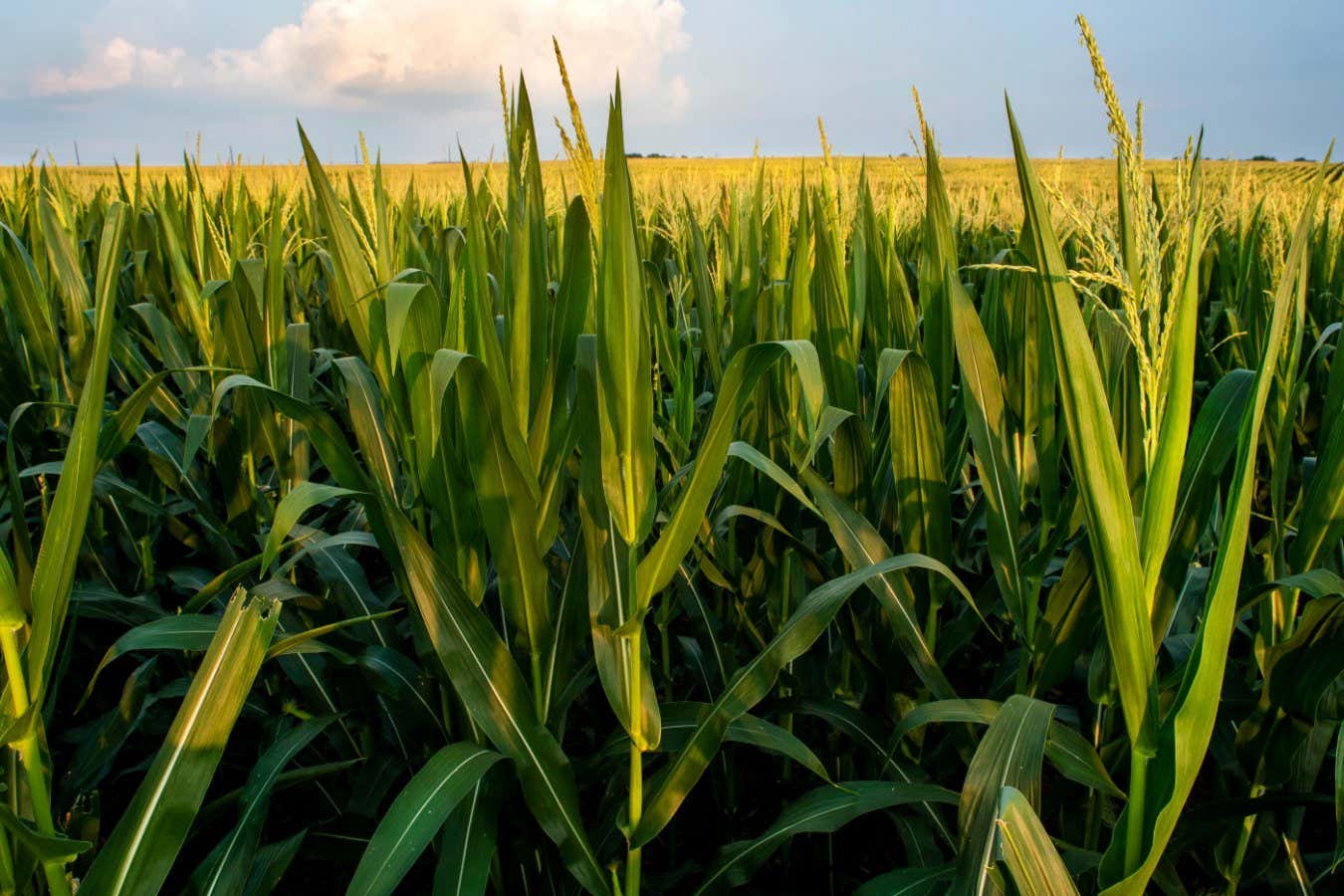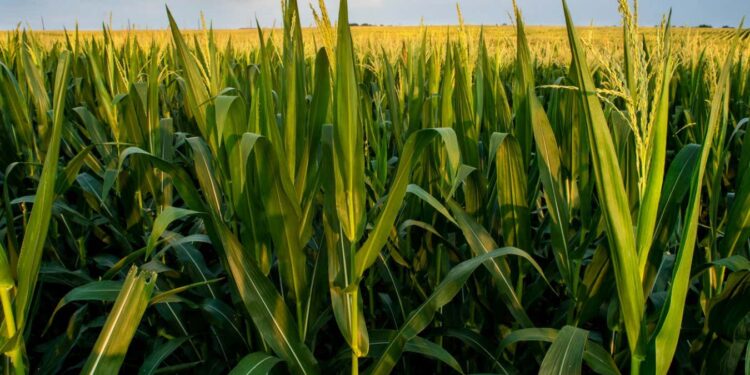
Climate change will reduce the supply of most staple crops, including corn
Jon Rehg/Shutterstock
Rising global temperatures are likely to cause deep losses to the world’s most important crops – despite farmers’ best efforts to adapt. A global analysis of crop yields suggests that, by the end of the century, each degree Celsius of warming will reduce the food available per person by about 121 kilocalories per day.
Under a 3°C warming scenario – roughly our current trajectory – “that works out to giving up breakfast for everyone”, says Andrew Hultgren at the University of Illinois Urbana-Champaign.
Hultgren and his colleagues collected data on the yields of the world’s six main staple crops, accounting for more than two-thirds of global calories. “It’s one of the largest datasets now available of high-resolution crop yields,” he says. They also collected information on local weather patterns from 54 countries.
The researchers then used this information to project how the different crops would respond to a changing climate – and how farmers would adjust as well. “We mined that data for information about how farmers have reacted to weather shocks historically,” says Hultgren. This allowed the researchers to estimate how different agricultural adaptations, such as changing which crop varieties are grown, boosting irrigation or using more fertiliser, would mitigate crop losses.
For all crops except rice, which grows better when nights are warmer, they found that higher temperatures will lead to steep losses. For instance, global corn yields are projected to fall by about 12 or 28 per cent by the end of the century – depending on whether greenhouse gas emissions are moderate or very high respectively – relative to what they would be without global warming.
These numbers account for how farmers would adapt to higher temperatures, as well as the impact of potentially helpful climate-change effects, such as crops being fertilised by increased levels of carbon dioxide. Both make a big difference – for example, without adaptation, crop losses would be about a third higher at the end of the century under a high-warming scenario – but they don’t offset the majority of the losses. “In a high-warming future, you start to wonder if the [US] corn belt is going to be the corn belt,” says Hultgren.
Wolfram Schlenker at Harvard University says the conclusion that farming adaptations are unlikely to make up for crop losses due to climate change tallies with previous findings focused on specific regions. “The huge contribution of their study is they didn’t just focus on one country, but they compile this data from countries around the world,” he says.
That global view reveals some interesting patterns. For instance, the researchers found that the largest projected crop losses don’t occur in low-income countries, but in the relatively wealthy breadbaskets of the world, such as the US Midwest and Europe. “They’re not better adapted to it than poorer countries,” says Schlenker.
Michael Roberts at the University of Hawai’i at Manoa says the findings are in line with results from smaller-scale studies. But he points out that huge uncertainties remain, including the extent of future climate change and how the extraordinarily complex global food system will respond.
“The scary thing is, we just don’t know,” says Roberts. “There’s incredible uncertainty, and most of that is on the downside. Anything is possible, from no losses to devastating losses that would cause mass starvation. That should be humbling for people.”
Topics:
Source link : https://www.newscientist.com/article/2484712-worlds-farmers-wont-be-able-to-keep-up-with-climate-change/?utm_campaign=RSS%7CNSNS&utm_source=NSNS&utm_medium=RSS&utm_content=home
Author :
Publish date : 2025-06-18 16:00:00
Copyright for syndicated content belongs to the linked Source.







